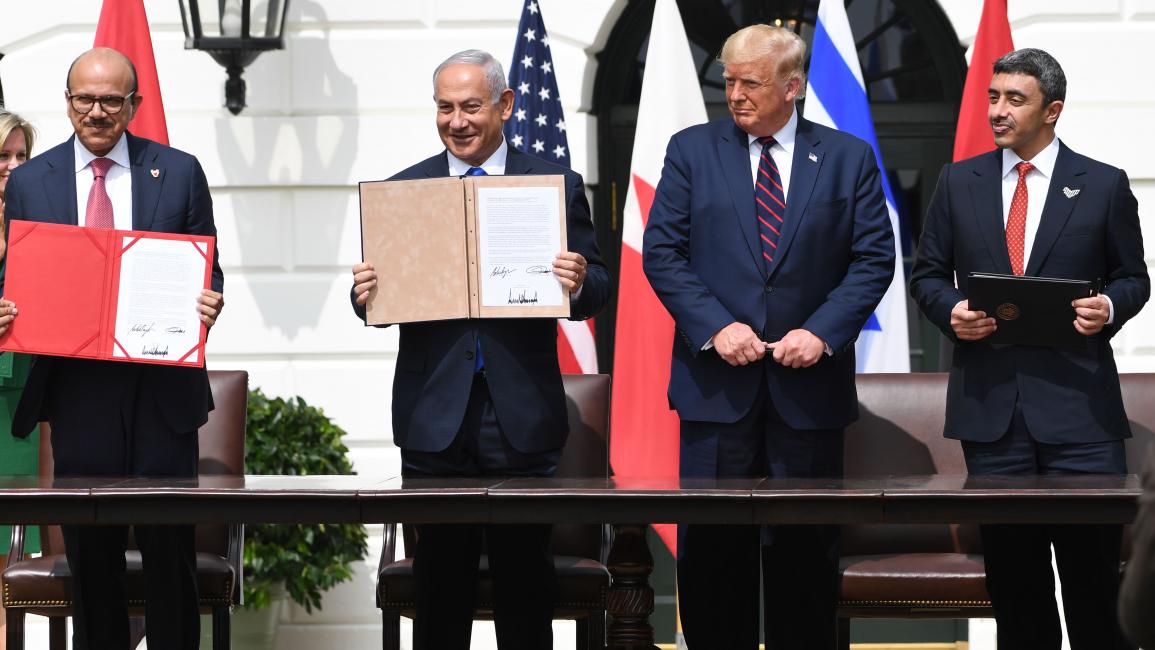Nearly a month after the United Arab Emirates announced its readiness to normalize relations with the Zionist regime on August 14th, Bahrain recently announced the full normalization of its diplomatic relations with the Zionist regime. A joint statement issued by the United States, Bahrain and the Zionist regime on September 12 on the normalization of relations between Bahrain and the Zionist regime read: “They talked to each other and agreed to establish full diplomatic relations between Israel and the Kingdom of Bahrain.”
Now that the two small Gulf states have established normal diplomatic relations with the Israeli regime, the question arises as to what the consequences will be for Abu Dhabi, Manama and the Zionist regime.
Regarding the UAE, it should be noted that the normalization of its relations with the Israeli regime in the propaganda arena, as well as in the media in line with Abu Dhabi policies, has drawn a series of developments that from the point of view of most experts is not possible now or in the future. ; That is, exactly the same mirage that was drawn in the establishment of relations between Egypt and Israel four decades ago and did not play any role in the economic, political and military conditions of Egypt; But unlike opponents of normalization of relations, who predict very negative consequences for the UAE, there are also realistic views that point to a series of political, economic, and even cultural and social consequences.
According to these views, the normalization of relations between the UAE and Israel will pave the way for the security of the UAE political space, and therefore in the field of trade and economic activities, part of the actions in the shadow of security actions and reactions, will decline. This view is based on the well-known formula of relations between security and economic activities, which considers the increase of each to be the cause of the decrease of the other. In this regard, experts also point to the generalization of this formula in the UAE’s foreign trade relations and believe that the sensitivities of regional public opinion towards the normalization of relations with Israel will reduce the level of UAE trade with other countries.
This shortcoming is what will happen despite the massive media propaganda in the UAE security and military arenas. It is clear that the presence of Israeli security or military elements in the UAE will cost the Abu Dhabi government a lot of money, and while creating suspicion of any security and military movement in the UAE, it will cause many setbacks among the security and military forces of this Arab country. As some analysts believe, the security and military forces of the Israeli regime will never dare to enter the territory of the UAE, as such a presence may lead to bloody settlements and armed actions of the opposition; Therefore, the fact that Israeli-UAE relations will increase security and increase the UAE’s military capabilities is a statement that is only possible on paper.
Regarding the normalization of relations between Bahrain and Israel, not only what has been said about the negative consequences of these relations with the UAE, but also due to the greater cohesion of the Bahraini people and their great sensitivity to relations with Israel, this issue can lead to tensions and Consecutive social convulsions in this smallest country in West Asia. At present, the signs of this opposition to the normalization of relations between the Bahraini people as well as the Bahraini citizens living abroad are clearly visible.
Officials in the UAE and Bahrain, as well as Israeli officials, believe that by normalizing and launching massive propaganda about it, they have been able to change the political and propaganda climate in the region in their favor, in the face of numerous failures over the past two decades. The corresponding reactionary regimes have endured, to succeed; On the basis that, with the support of Washington, they have succeeded in consolidating their political systems and ensuring the continuation of their rule with the support of the United States; But a look at the military balances in the region, on the one hand, and the observers’ fears of compromising public opinion on the other, shows that such a suspicion will not remain for a few mornings, and what determines and will determine important conditions and equations in the region are capabilities. It is the defense and the military that have created the most reassuring deterrent in the Axis countries of resistance and eliminated the possibility of any military threat, even from the United States.
In particular, this deterrence has now been widely supported by public opinion due to the compromising policies of the reactionary Arab countries and has led to further restrictions on the implementation of Washington’s plans.










0 Comments